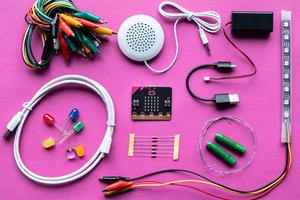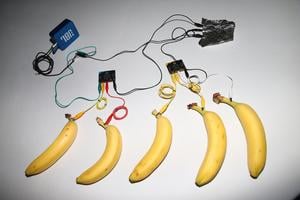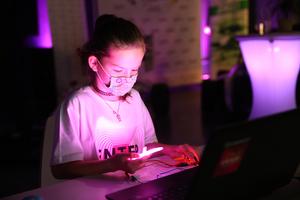What the country will look like in 20 years' time depends above all on the new smart generation of digitally skilled people who make the most of technology for the benefit of themselves and society as a whole. We have discussed how Slovak Telekom wants to help Slovakia to reduce the digital gap with its Country Director Dušan Švalek.
Why is digital education important for your company?
As a responsible company we have a strong commitment to helping everyone participate in the opportunities our telecommunication technologies provide. We have connected more than 700 thousand households to our fibre optics to reduce the digital divide in all regions of Slovakia. Digital technologies have a strong potential to make every individual and all of society move forward. We see the potential of younger generations contributing to our digital and sustainable future. This is why we have launched together with our partners our new educational project ENTER.
What is ENTER and how will it help Slovakia?
We try to create an environment that supports digital education at primary and secondary schools. With our new educational programme ENTER we will provide schools with teaching tools, children and their parents with practical guides and teachers with teaching materials. We will also enable teachers to acquire the necessary skills and experience though workshops and seminars. In the first stage of the project, we will distribute € 250,000 through a grant programme focused on providing schools with special micro:bit microprocessors.
The IT sector has long reported a shortage of professionals. Is this a problem of education in schools?
According to the European Commission's forecasts, 9 out of 10 jobs will require digital skills in the near future. At the same time, up to half of the jobs we know today will no longer exist in 20 years. However, new jobs will be created that will require digital skills and digital literacy. It is necessary to start preparing children today to address future changes on the labour market.
How do you want to change it?
Digital technologies can make our lives significantly easier. They are all around us and allow us to work with information. Children today grow up with mobile phones at their fingertips and technology is a significant part of their lives. Our task is to teach children to work with technology meaningfully, explore it, discover new things, express ideas and create. The educational programme ENTER will enable schools to take advantage of the latest innovations in computer science education.
What innovations did you bring to digital education?
We build on the unique micro:bit project introduced by the BBC for use in computer education in the UK which was later adopted by other countries such as Denmark or Singapore. Micro:bit is a miniature programmable computer, thanks to which children can learn basic programming skills in a playful and interactive way, promoting their creativity. At the same time, micro:bit has cross-curricular use and besides computer science it can be easily utilised in subjects such as biology, chemistry or geography. What is even more interesting is that as much as 90% of children in the UK who have tried micro:bit said that every child can learn computer programming.
Where can students and teachers find more information about the project?
We have created an online platform www.Enter.study which serves multiple purposes. In addition to being a motivational tool for students, it will also allow teachers and the general public to share various educational materials in order to increase knowledge of the use of the micro:bit. Thanks to the platform, everyone will be able to discover new possibilities and functionalities that the microcomputer offers. The catalog of videos and detailed instructions will be constantly expanded, creating an extensive library in which anyone will be able to find further inspiration for the use of the micro:bit.
How do you see the position of women in IT professions?
A change in mindset that computer skills are the domain of men is long overdue. Women are as good as men when it comes to computing performance. For example Katarína Šúchalová, head of our customer IT systems, is leading one of the most important IT teams in our company with more than 300 IT professionals.
Its certain that girls have the same potential to be successful in technological disciplines as boys do, but it is precisely because of educational bias and social prejudices that girls often prefer other fields of study. We have joined forces with the nonprofit educational organisation Aj Ty v IT, which is dedicated to promoting IT education among girls. We want to encourage young women to study informational technologies as their preferred field of interest.
What is BBC micro:bit?
It was developed by the British public service broadcaster BBC in 2016 as part of a campaign to promote digital education in the United Kingdom. It follows from the BBC Micro, which helped to introduce computers to the general public back in the 1980s. The BBC micro:bit is a pocket-sized computer that presents how software and hardware work together and lets you get creative with digital technology. BBC micro:bit encourages kids to learn basic coding and programming skills to prepare them for today’s tech-savvy world. The device features 25 LED lights and two programmable buttons, which can be used as a game controller or to skip through tracks in a playlist. It also features an onboard compass to track its direction, and you can connect a whole lot of different sensors and other input/output features to almost unlimited possibilities. To programme a micro:bit, kids simply need to connect it to the computer via an USB cable and add some simple lines of code to create the gadget they want. The micro:bit can be programmed into number of different things, such as a digital watch, an automatic watering system or a digital “banana” piano.


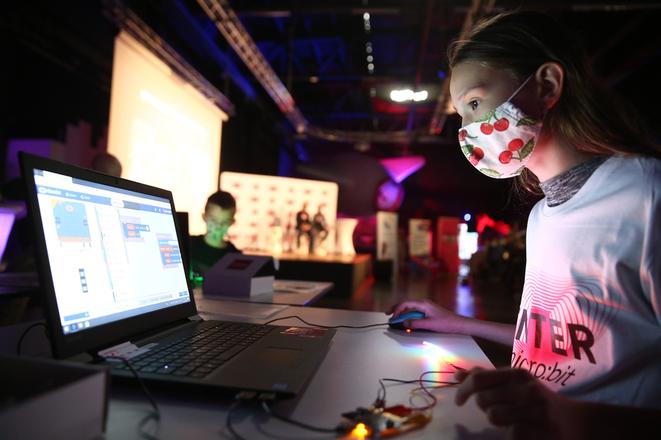 (source: Slovak Telekom)
(source: Slovak Telekom)
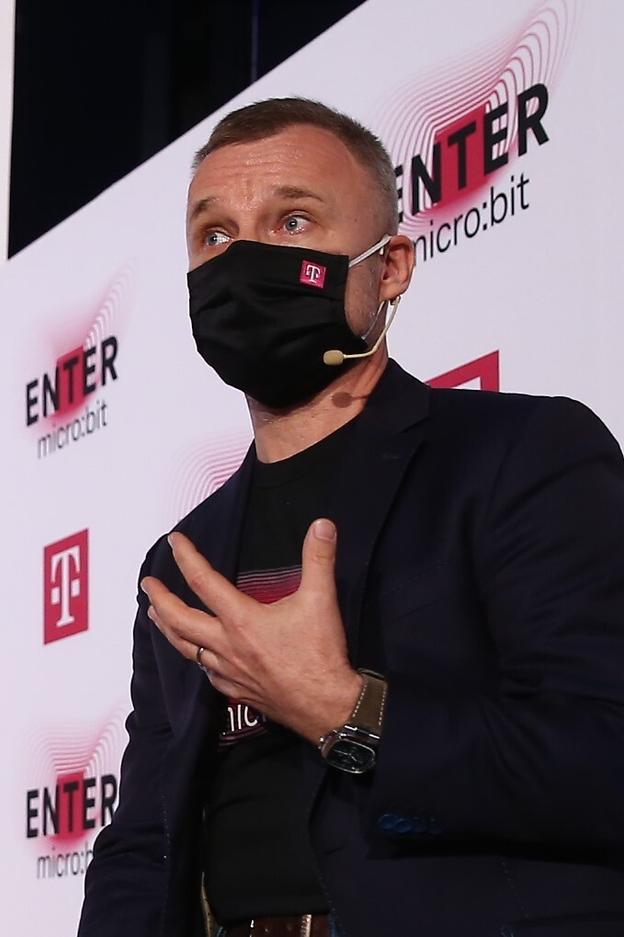 DUŠAN ŠVALEK, Chief Country Officer in Slovakia (source: Slovak Telekom)
DUŠAN ŠVALEK, Chief Country Officer in Slovakia (source: Slovak Telekom)
